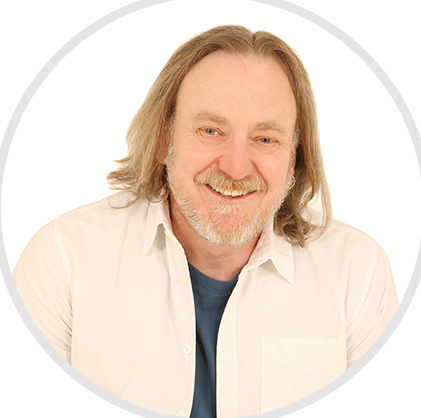
Therapy is such a confidential situation, so not everyone gets to hear about the great work that is done behind closed doors. So that’s why we are putting together a series of short interviews with our therapists to feature the amazing work they do and a little about the people behind the job titles.
This month we are featuring our Counsellor and Psychotherapist Keith Norman. Here’s what he had to say:
Could you briefly tell me about yourself?
“I’ve been qualified for about 4 years. I’ve been at Rutland House for about 6 years, since I did my placement here and stayed on. I’ve done many jobs, because I didn’t know what I wanted to do. I’ve been a lab technician, been in the army, managed a punk band, been a teacher, been a youth worker, and a site manager in a construction industry which I still do 2 days a week. My experiences have been very useful as a therapist as there’s very few people that I cannot connect with.”
What do you like doing in your free time?
“Generally, guitar. During the lockdown, I got into building the guitar pedals. I’m really into custom motorbikes as well. Reading and learning are my other hobbies. I did Taekwondo as well. We closed the club in the beginning of the lockdown, and I haven’t got down to it yet after they opened again. Right now, my schedule is busy due to work, but I’ve still got a kick bag in the garden that I can use at any time.”
Why did you choose your career path?
“I didn’t, it chose me. I got a ‘proper job’ in 2007. I didn’t really like it, but they paid well. I kind of got trapped in that for years. So, I really fancied doing a degree on what I like, as I thought ‘That would give me more career options.’ I’ve always loved reading about popular science and psychology. My first choice was to go and do a psychology degree. I had a full-time job, so I had to find something that fits the full-time job as I couldn’t just give it up and go to university. One day, a friend of mine suggested to me that there was a psychotherapy degree in Sherwood, and it had weekends, so I could fit it around my job. I applied, got on the course, and went under the psychotherapy degree, but not with the intention of becoming a therapist first. Overtime, I loved the work and loved the concept of it. It was something that really suit my personality. The rest is history as they say.”
If someone walks up to you in the street and asks for some advice on mental health, and you have about 1 minute to spare, what would you say?
“I wouldn’t have a standard reply. It would totally be about where they’re at during that time. If it is a general question, I would totally recommend talking therapy. It’s usually the answer for everything. I could be slightly biased on that, but we are all sort of damaged, carrying what has been done to us, and it affects us day to day. I did my dissertation on basically working with men, and how all of these societal norms suggests that men should be like this and that. We can’t keep up with that. For males, they expect you to be tougher than everybody else, but there are around three and a half billion men on this planet, and how can we all be the toughest? I would tell the person to deal with those sorts of issues first, because we all need to at some point.”
What is the objective of a psychotherapy session in your opinion?
“The simple answer would be to leave the client feeling slightly better than they did when they walked in. But that’s not always the case, because sometimes you have to go to the bad places if you need to, and there will be times when they feel worse than when they walked in. You might spend 6 months working with something that’s really hard and difficult. I suppose, if I had any sort of answers, it’s for the client to have less ‘load’ compared to what they were carrying before they walked in.”
When do you think someone should consider psychotherapy?
“They’re 16th birthday, maybe 18th. Nobody gets through life without picking up a little damage here and there. There is no such thing as perfect parenting, even if there is, it is so rare that it might as well be non-existent. We’ve all got this stuff that we went through, but pretend it never happened or pretend it doesn’t affect us. We carry it day to day, spend energy dealing with it without actually dealing with it. So, I think there is no sort of time not to have therapy in a way, as it is beneficial for everybody.”
How has the industry changed since you started?
“The radical one would be just how normalised online therapy became. I remember being at a network meeting, literally the week before lockdown, and I was adamant that online wouldn’t be as good as face to face. You can’t technically make eye contact online, because you would have to look at the camera and not the screen, and the human brain picks up on stuff like that. However, that hasn’t been much of an issue, and it’s worked quite well, so I stand very corrected on that one. The other major change is, I generally work with men, and I am not short of clients. I think that throughout the years, men have become more open to therapy.”
As a therapist, how do you manage to be emotionally available to your clients?
“I think this is one of those things that if I thought about it, it would feel like a technique, and if it felt like a technique, it wouldn’t work. So, I go in there and be myself, which works for me.”
What do you like about your job?
“It’s purposeful, meaningful, and it’s about change. At my old job, working in the construction industry, one of the things that got to me is that you are just making money for the rich people. It started to feel like I am not making the world a better place in anyway. The job that I do now is spiritually rewarding, and that’s what I like about the job the most.”




